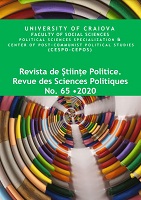Teaching the Digital Natives
Teaching the Digital Natives
Author(s): Costina Denisa BărbuceanuSubject(s): Education, Media studies, ICT Information and Communications Technologies, Pedagogy
Published by: Editura Universitaria Craiova
Keywords: digital natives; digital immigrants; technological curriculum; digital literacy; internet;
Summary/Abstract: “If we teach today’s students as we taught yesterday’s, we rob them of tomorrow.” (West, 2013). Although the words of the philosopher, psychologist and educational reformer John Dewey, were uttered almost a century ago, he could not have predicted the current internet era or the technological resources available today, digital textbooks, projectors, social media, iPhones, iPads, blogs, wikis; yet his words reverberate today louder than they must have echoed in the past. If school infrastructure and teachers do not reinvent themselves to keep up with the technological advances of the 21st century, students will suffer. Subsequent of the growth of ground-breaking didactic technologies, the common apprehension of teaching and didactics progresses together with the expansion of learning theories. Today’s teachers must learn to communicate in the language and style of their students, re-thinking old-style teaching in education in the digital age, where educators often find themselves as immigrants trying to cope with the digital natives that are no longer engaged with chalk and blackboard and one educational flow from the teacher to the student. Teachers must recognize that their students are digital natives who master essential skills for accessing digital, cloud libraries and informational resources available from their own devices. Phones, today no longer serve the purpose of speaking, they are digital tools, mini worlds, from where the holders connect with the entire world, in a blink of an eye. How do we master teaching in the miscellaneous scenery of the 21st century classroom? How can we use Multimodal training and technology to create an engaging learning atmosphere? How can we merge old-style literacy with the new idea of plural literacies to get students ready for standardized assessments and life outside the teaching space?
Journal: Revista de Științe Politice. Revue des Sciences Politiques
- Issue Year: 2020
- Issue No: 65
- Page Range: 136-145
- Page Count: 10
- Language: English

